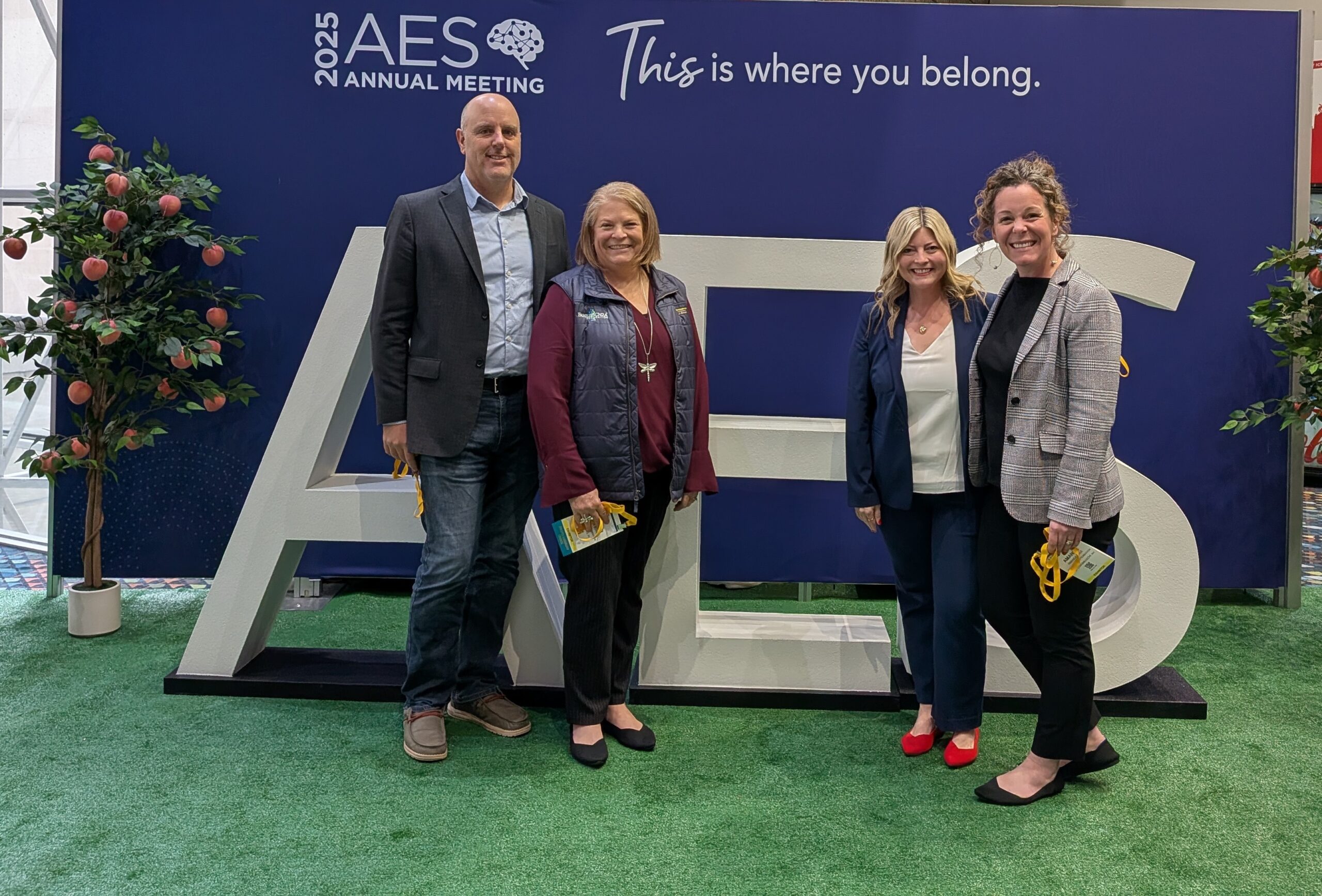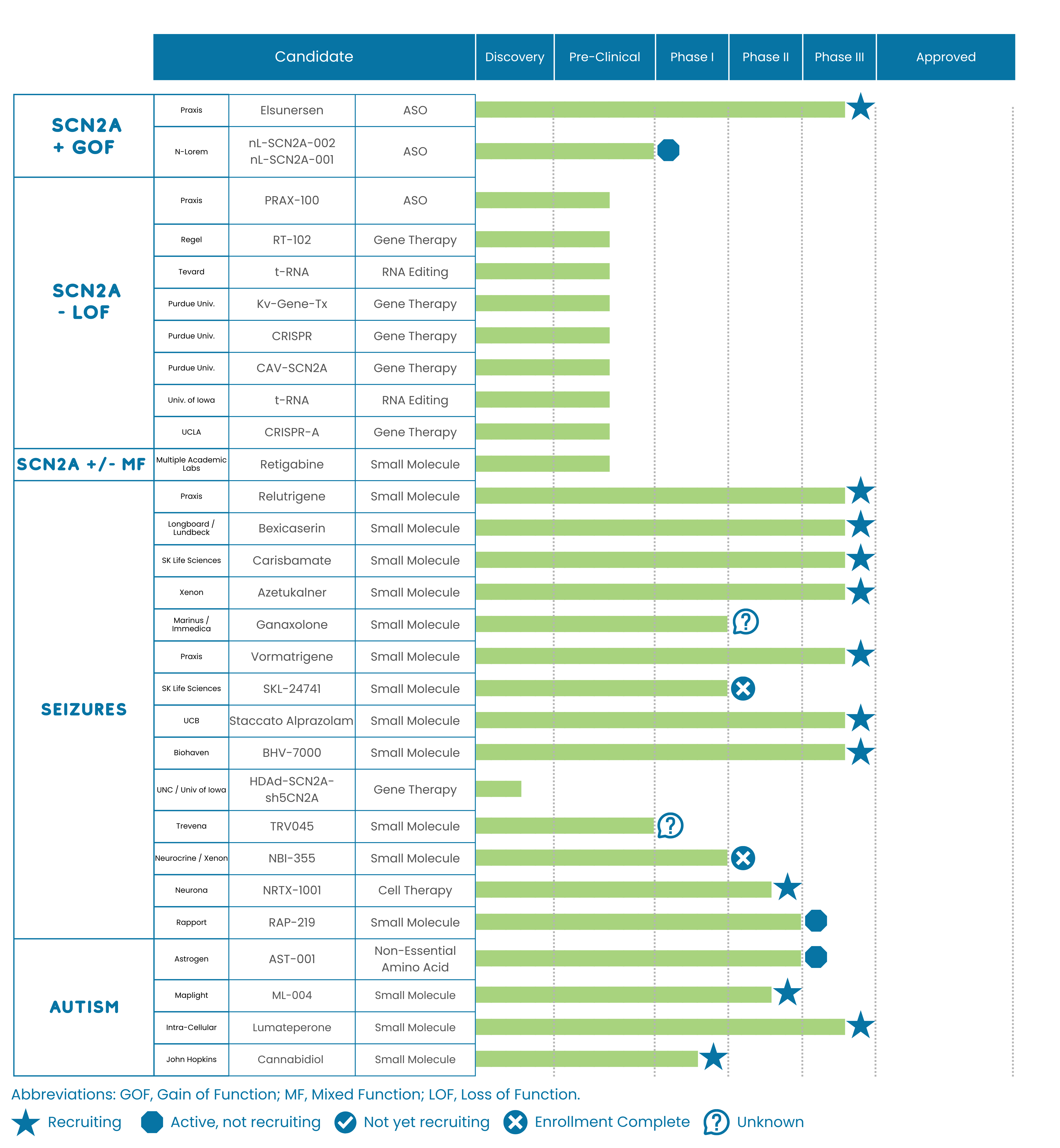
The FamilieSCN2A Foundation Response to Recent Autism News
“In light of this week’s public comments and media discussion about the causes and management of autism, we want you to know: we’re thinking of you. Moments like this can feel confusing or heavy—especially for families already navigating complex care. You’re not alone, and we’re here.” -Amanda Gale, FamilieSCN2A Program Manager, in 9/23/25 email inviting the community to a special town hall listening session
Author: Melody Kisor, MS, BCPA – Director of Advocacy melody.kisor@scn2a.org; Reviewed by Jeff Cottrell, PhD – Interim Chief Scientific Officer jeff.cottrell@scn2a.org; Reviewed by Eloise Austin, MD – MSAB, TASCO advisor, Trustee eloise.austin@scn2a.org
We understand that families are anxious to learn more about any treatment options for their children. We also understand – on a very personal level – the desperate need to find answers when our children are unwell.
The news and social media are filled with highly-charged responses to the White House press conference on September 22, 2025. Many rare disease partner organizations have put out thoughtful and well-researched responses to speculation of acetaminophen’s potential role in the development of autism and the potential use of leucovorin (folinic acid) for treatment of autism. Rather than duplicate their work, the FamilieSCN2A Foundation would like to focus on a few key points that may assist our community in processing the news.
SCN2A is the leading monogenic cause of autism
Sometimes, the cause of autism is not known, or is associated with a combination of suspected genetic and environmental factors. However, in about 80% of cases, autism can be linked to a known pathogenic variant (also called a genetic mutation). While not all people with a pathogenic variant in SCN2A will develop autism, among all of the known genetic causes of autism, SCN2A represents the leading single-gene cause of autism.
Having a child with an SCN2A-related disorder is not your fault
Even when there is a known genetic cause, parents can still have strong feelings of guilt, worry, or concern about how this could have happened. Remember, there is no fault or blame. Nothing that you did, or did not do, during pregnancy or infancy caused your child’s genetic variant or SCN2A-related disorder!
No known medications contribute to the cause of SCN2A-related autism – including Tylenol
There are over 1,000 scientific publications about SCN2A, demonstrating deep understanding of the biological mechanisms of the sodium channels. There are no known medication contributors, including Tylenol (acetaminophen), that lead to the development of autism in people who have pathogenic variants in SCN2A (typically loss of function variants). Taking Tylenol during pregnancy, or giving your infant Tylenol during a fever, did not cause the SCN2A genetic variant responsible for their autism.
There is no evidence that leucovorin (folinic acid) would be an appropriate treatment for SCN2A-related autism
SCN2A is a very unique and highly-specific gene that controls sodium channels and is very different from other known or suspected causes of autism. The recent FDA expanded labeling of leucovorin to treat autism spectrum disorder is based on very limited research on a small number of individuals, specifically targeting people with cerebral folate deficiency. People with SCN2A-related disorders are not known to have cerebral folate deficiency, and leucovorin has not been tested in the SCN2A population. There is no evidence to suggest that taking leucovorin will help people with SCN2A-related autism, and taking a medication like leucovorin without knowing how it impacts neurological functioning or interacts with other medications in people with SCN2A-related disorders could be harmful.
Treating SCN2A-related disorders is complicated and requires expert care
When you have a child with autism, it’s hard not to be inundated with well-meaning, albeit often unsolicited, advice from friends, family, and even perfect strangers. The internet is rife with misinformation and fake “cures.” People may also question your decisions or introduce doubt into your doctor’s recommendations for vaccinations, fever treatment, or other clinical advice. Stand firm! Remind advice-givers that your child has a known, complex genetic condition, and that not all treatments are appropriate for people with SCN2A-related disorders, even if they might work for other people with autism.
It is critical that you talk to your doctor before trying or stopping any treatments, especially if those treatments could interfere with medications or cause unintended harm. If you have concerns about your doctor’s recommendation for fever-reducing treatments such as Tylenol, ask them to help you understand the risks, benefits, and alternatives. It’s not enough to just consider the risks of treatment; also consider the risks of not treating. For example, fever is a well-documented trigger of seizures. In considering risks and benefits, parents and clinicians should consider the potential risk of medication versus the known risk of seizures (and need for extra anti-seizure medication) during an untreated fever.
Children with SCN2A-related disorders must receive appropriate medical care when they are ill. Expert clinicians in the SCN2A Multidisciplinary Centers are the best source for up-to-date treatment knowledge.
The FamilieSCN2A Foundation is committed to supporting research and development of appropriate treatments
The FamilieSCN2A Foundation has a firm commitment to supporting the research and development of promising treatments for SCN2A. Thanks to generous donor support, the Foundation funds multiple clinical and research projects to better understand the science of SCN2A-related disorders. Our robust research network, including the Medical and Scientific Advisory Board (MSAB) and the Team for Accelerating Science and Clinical Outcomes (TASCO), stand ready to support the community in understanding the cause and treatment of SCN2A-related disorders.
You can help with research to find treatments specifically designed for SCN2A
We strongly need your help to participate in efforts to advance clinical knowledge and support the development of appropriate treatments for SCN2A-related disorders. Please consider joining:
- SCN2A Dragonfly Patient Registry
- Simons Searchlight natural history study
- Citizen Health retrospective natural history study
- Clinical Picture Maker video documentation
You may also contribute to scientific knowledge by participating in clinical trials and other experimental research projects. New clinical trial opportunities will be posted on our website. Please visit the newly-revamped SCN2A.org research section for more information on how to participate in research, treatment pipeline updates, and clinical trial and research opportunities. Email research coordinator Morgan Weberg to learn more about these research studies. morgan.weberg@scn2a.org
FamilieSCN2A Foundation will advocate hard for any appropriate treatments
When the time comes that there is sufficient evidence that a treatment may help SCN2A-related disorders, the FamilieSCN2A Foundation will advocate relentlessly for FDA approval, availability, and insurance coverage of treatments for our community. Efforts are already underway to prepare for major advocacy efforts, including the recent submission of a letter of intent to the FDA requesting to host an externally-led Patient-Focused Drug Development meeting.
LEARN MORE:
About SCN2A-related autism
SCN2A research
- Research main page
- How to participate in research
- Research roadmap and treatment pipeline
- Clinical trials and research opportunities
Clinical information for professionals
Comprehensive clinical reviews and other key publications
- SCN2A-Related Disorders – Elements in Genetics in Epilepsy (Cambridge Elements)
- Family Companion Guide from Notre Dame University
- SCN2A key publications
Autism partner organizations


